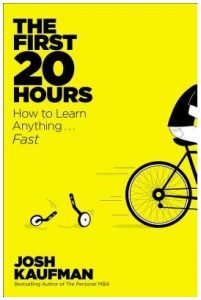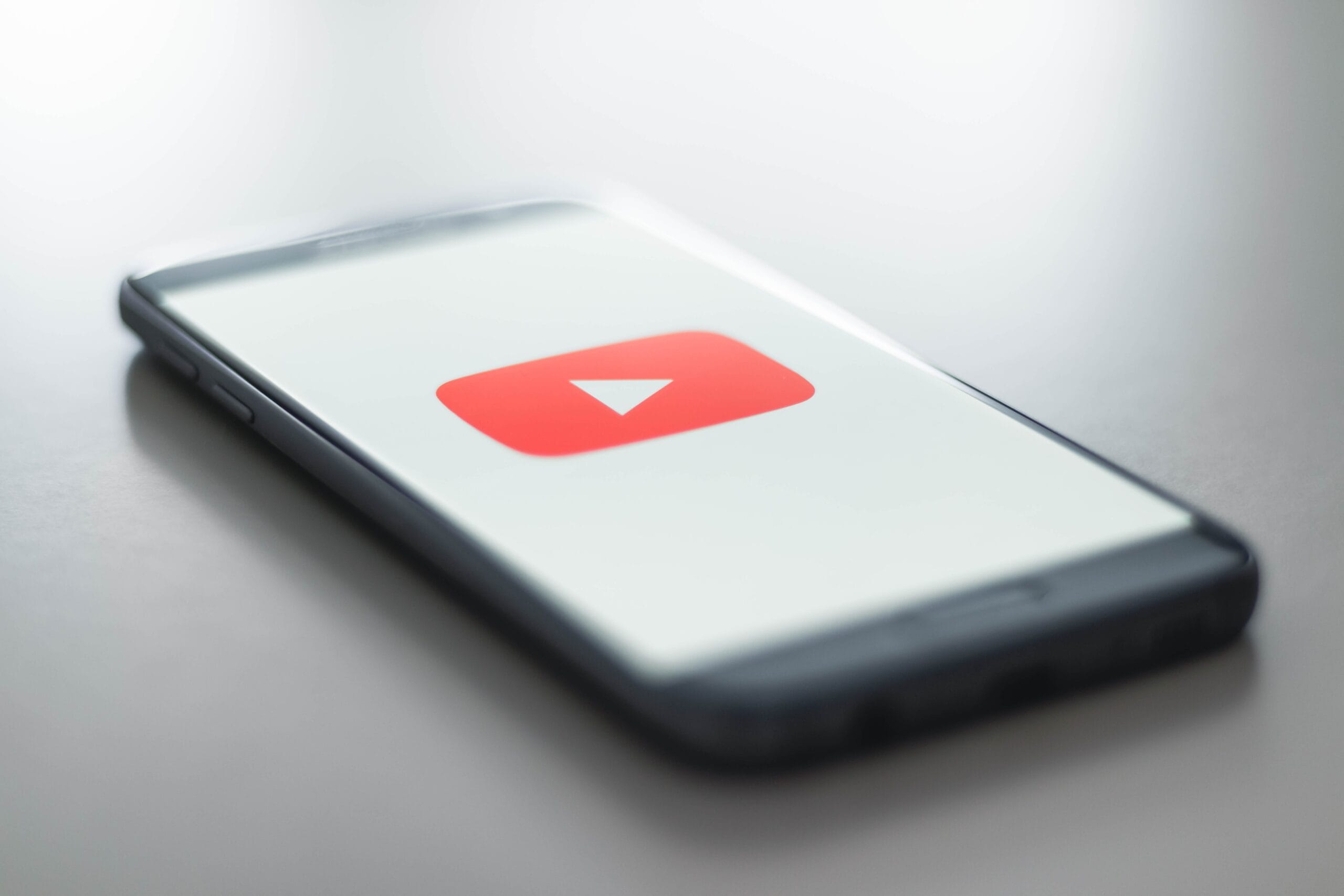
How to Acquire Any New Skill in 20 Hours or Less
A while ago, I invited one of my friends, Josh Kaufman, to talk about mental frameworks (like the ones I used to answer hundreds of emails/day). As a reminder, Josh founded PersonalMBA.com and is one of the deepest thinkers on systems that I know.
Today, I’ve invited him back to talk about the process of how to learn a new skill. If I want to learn windsurfing, do I really need to spend 10,000 hours? How do I get ?good enough? to enjoy something faster than that?
I like having Josh share his techniques because he’s a total weirdo. Instead of using off-the-shelf software, like 99% of people in his business do, he built it himself. When I looked at him disgustedly, saying “Why, dude?” he smiled and said, “It was fun.”
No! It’s not fun to build a shopping cart. But he loves the process of pushing through the initial pain to build something new.
His new book, The First 20 Hours: How to Learn Anything… Fast, will teach you exactly this.

What I like about Josh is he breaks down learning all kinds of new skills — like playing a new instrument, learning a new language, picking up a new sport, or even learning to cook. These are the things we always talk about wanting to do, but never actually get around to doing. And in today’s guest post, he’ll show you how to acquire any new skill in 20 hours or less. (By the way, I especially love the part where he preemptively yells at you below.)
Take it away, Josh
* * *
In less than 12 months, I’ve learned the following:
1. How to code. My entire business now runs on software I wrote myself, and if I ever decided to stop running my own business, I could land a six-figure position pretty easily.
2. How to do yoga. Now I can practice by myself at home in a safe, effective way, and I’m getting stronger and more flexible every day.
3. Learned how to windsurf. It’s a challenging, physically demanding sport, but it’s super fun.
4. How to play the ukulele. I know how to play many popular songs, and I can pick up a songbook or tab and figure out how to play pretty much anything.
5. How to play Go. It’s the oldest strategic board game in the world, and WAY more complicated than chess.
6. How to touch type (again). I now type using a keyboard layout called Colemak, which is much more efficient than the QWERTY keyboard layout most people use.
7. How to shoot and edit a movie. I bought a camera and shot my first short film: a trailer to launch my second book, an international bestseller that hit #2 on Audible.com overall. Outsourcing production of the trailer to a professional would’ve cost at least $20,000, so even after purchasing my camera and gear, I had an immediate 300%+ ROI on the project.
I learned all of these brand new skills on the side, without quitting my day job or ignoring my family. In the midst of these projects, I overhauled a 140,000+ word manuscript (the second edition of my bestselling business book, The Personal MBA), taught three business training courses, took care of my two-year-old daughter, helped my wife build her business, and wrote the manuscript for my second book.
How? I learned how to acquire new skills very, very quickly.
It’s not rocket science. If you’re smart about how you practice, you can go from knowing absolutely nothing about it to being quite skilled in only a few hours. Put in as little as 20 hours of focused, deliberate practice, and you’ll easily outperform 99% of the human population.
If you learn to practice in an intelligent, strategic way, there’s no limit to what you can learn.
Even rocket science.
* * *
What Skill Would You Like to Learn?
Take a moment to think of all of the things you want to know how to do. Would you like to:
* Learn how to speak or write a new language?
* Figure out how to draw?
* Play a musical instrument, or learn to sing?
* Start your own business?
* Get better at negotiation or public speaking?
* Program, design, or learn some useful new technology?
* Fly an airplane?
Learn how to acquire new skills quickly, and you can pick up ALL of these skills, and many more. You can learn things that’ll help you make more money. You can learn things that’ll raise your profile, earn the respect of people you value, and create new opportunities. You can learn things that’ll permanently enrich your life, and open up entirely new areas of the world for exploration and enjoyment.
Ready to improve your habits and level up your life? Download our FREE Ultimate Guide To Habits below.
The 3 Major Barriers to Learning New Skills

So why don’t most of us spend more time systematically picking up new skills? Three reasons:
1. Most people don’t commit to learning anything specific. They just say things like “I think it’d be totally cool to learn how to speak Japanese someday,” and never actually make a plan to sit down and practice. Even worse, they never take a moment to figure out WHY they’re interested in that particular skill, so it’s close to impossible to make it a priority vs. other, more urgent matters, like going out drinking with friends or watching old episodes of Breaking Bad.
2. Learning new skills is often intimidating. When you’re learning something new, there are enormous gaps in your understanding of the topic. You’re very aware of what you don’t know, and you don’t know where to begin. That ambiguity generates fear and uncertainty, both of which make the ancient survival-oriented parts of your brain freak out. What’s the easiest way to stop feeling afraid? Give up.
3. Learning new skills is usually frustrating. Let’s say you push through the uncertainty long enough to actually sit down and practice. Here’s what’s going to happen: YOU WILL SUCK. Completely, totally suck. What’s the easiest way to stop feeling stupid? Stop practicing, and say to yourself, “it really wasn’t that interesting to begin with.”
Here’s the thing: indecision, intimidation, and frustration are universal barriers to skill acquisition. They’re entirely predictable, so you can prepare accordingly.
The key to rapid skill acquisition isn’t involve complicated memorization techniques or mental hacks. It’s just a simple, systematic way to spend your time and energy doing things that help you build real skill, and avoid things that don’t.
* * *
Don’t Worry About Becoming an Expert
Let’s get one huge misconception out of the way right now: when learning a new skill, you don’t have to worry about ?mastering? the skill or becoming an “expert.”
Say you don’t know how to paint, but want to learn. Here’s the absolute worst way to go about it: compare your current level of ability (nouveau third grader) with Picasso, Michelangelo, or any random artist that posts on deviantART. Anything that you produce will look like garbage in comparison, so why bother?
Even worse, you may have heard that it takes ?10,000 hours? to master a skill. That’s at least 4 hours of practice every single day for almost 7 years. Who has time for that?!
Here’s the thing: you probably don’t need to be an expert.
Skill acquisition is tied up in many ways with social status: being good at something is a status signal, so our brains track our perceived competence vs. others constantly. When you don’t think you’re as good as other people at something, it’s common to feel self-conscious, and your mind starts looking for ways to protect your fragile ego from feelings of inferiority.
That’s why you get so uptight when you try to learn something new: your brain kicks into social comparison mode, even though it’s unnecessary at best, and counterproductive at worst.
Most of the time, you don’t need to be an expert – you just need to practice enough to get the results you want, whatever they might be. Comparing yourself against other people during the beginning stages of skill acquisition is wasted energy, and it’s a very real barrier to improving your skills.
In the vast majority of cases, people decide to pick up a new skill to either (1) get a particular valuable result or (2) have fun. That’s it. Social comparison is meaningless – who cares what other people can do if you’re able to get the results you want?
Here’s a simple example: I recently learned how to cook on the grill. I wanted to grill burgers, chicken, steak, vegetables, etc. for my family, so I could help out around the house. It only took a few hours of practice, as well as a few simple tools, to get really great results. (Pro tip: using an interval timer and a fast digital thermometer makes grilling anything way easier.)
Am I the most mindblowing expert ninja grillmaster who has ever lifted a spatula? No.
Am I now an internationally recognized celebrity chef? No.
Do I need to be in order to cook a delicious dinner for my family? Absolutely not.
When you decide to learn something new, you’re not competing against other people: you’re competing against your own previous lack of ability, and any improvement is a win.
Once you grok that early phase skill acquisition isn’t a competition, leveling up your skills and abilities becomes much, much easier.
* * *
Here’s the core method to acquire any new skill, personal or professional, as quickly as possible:
1. Set a concrete, specific Target Performance Level
Setting what I call a target performance level makes it much easier to identify exactly what you’ll need to actually practice. It sounds simple, but this is an extremely common point of failure: most people never decide what they want, so it’s impossible to figure out how to get it.
Define what you want to be able to do in a clear, concrete manner – the more detailed, the better. Instead of relying on a mindless, broad goal like “learn how to code,” setting a target performance level like “deploy a functioning Ruby on Rails application to Heroku” is much easier to practice.
Likewise, deciding on ONE skill to work on at a time is crucial. It comes down to arithmetic: you need a critical mass of experience doing something in order to build noticeable skill. If you spread your efforts over too many skills, you won’t improve any of them.
Choosing only one skill to work on is often difficult, so here’s a simple method I use to make it easier to decide. Make a list of all of the skills you’d like to learn. When you’re ready to commit to a new skill, take out your list, and ask yourself this question:
“If I could only learn half of the skills on this list, which ones would I keep?”
Cut your list in half. When you’re done, cut it in half again, and again, and again, until one skill is left standing, Highlander-style. (In the end, there can be only one.)
Remember: you’re not deciding that you’re never going to pick up any of the other skills on your list. You’re just deciding you’re not going to focus on them right now. Pick one skill: everything else can wait.
2. Deconstruct the skill to avoid overwhelm and make practice more efficient
Most of the things we think of as skills (like “public speaking” or “playing the guitar”) are actually bundles of smaller sub-skills that are used in combination. By breaking the skill into more manageable parts, practice becomes way less intimidating, and you can work on improving one sub-skill at a time.
Like so many things in life, skills follow the law of critical few (often referred to as “Pareto’s Law” or the “80/20 principle”). Breaking down the skill into smaller parts is the first step in figuring out which sub-skills are critical.
Take golf. When you “play golf,” you’re not just doing one thing. Driving off the tee, hitting with an iron, chipping out of a bunker, and putting on the green are completely different skills, so it’s best to practice each in isolation. Driving, using an iron, and putting happen most often, it’s probably best to practice those first. (I don’t even play golf: this basic level of deconstruction is possible after watching someone play golf for a few minutes. It’s really not that difficult.)
Most skills follow a similar pattern: a few subskills are critical, while the remainder are rarely used or contribute less to the end result. Practice the most important sub-skills first, and you accelerate your overall rate of skill acquisition.
3. Use 80/20 research tactics to find the most important subskills quickly
Next, find a few books, courses, DVDs, or other resources about the skill. Don’t try to finish them all in detail: skim them all, one after another. The most important techniques and ideas will appear often, in multiple sources, allowing you to establish which sub-skills are critical with more confidence.
An hour or two of research is all you need: too much research is a subtle form of procrastination. You want to do just enough research to identify the critical sub-skills, avoiding the inefficiency of “just getting started” without a strategy.
When I was learning to code, I bought over 20 books on the subject. I thought the best way to learn was to read the books, and THEN try to write my own program. The reality was the opposite: I only started to develop real skills when I used three introductory books to identify a few critical ideas, then spent my time actually writing programs.
Do your homework, then shift to real practice as quickly as possible. Practicing the skill in context is the only thing that generates lasting results.
Ready to improve your habits and level up your life? Download our FREE Ultimate Guide To Habits below.
4. Anything that gets in the way of focused, deliberate practice is an enemy that needs to be destroyed
The more effort it takes to sit down and begin, the less likely you are to practice. We’re all cognitive misers: if something takes a great deal of thought or effort in the moment, we’re less likely to do it.
Want to learn how to play the guitar? Guess what: keeping your guitar in a case, in the back of a closet, on the other side of your house pretty much guarantees you’ll never practice.
Here’s what I did when I wanted to learn how to play the ukulele: I kept it close to where I worked every day. All I had to do to start practicing was reach over and pick it up, so I practiced.
One of my friends (and former clients), Tim Grahl, has a great rule of thumb:
“I assume that future Tim is going to be stupid, lazy, and make bad decisions, so I set up my environment to prevent that from happening.”
Instead of relying on willpower to force yourself to practice, it’s always more effective to change your environment to make practicing as easy as possible. Little changes, like placing your guitar in an easy-to-reach location, make an enormous difference.
Likewise, anything that distracts you or pulls focus while you’re practicing holds you back. Close the door. Unplug your TV. Disconnect your internet. Mute your cell phone. Do whatever it takes to keep your attention on the task at hand.
Anything that gets in the way of focused, deliberate practice is an enemy that needs to be destroyed. No mercy.
5. Use precommitment psychology to break through early resistance
Now, the moment of truth: are you willing to rearrange your schedule to complete at least 20 hours of deliberate practice? (That’s roughly 45 minutes of practice a day for the next 30 days.)
Sit down, take out your calendar, and do the math. When exactly are you going to practice? What are you going to give up, reschedule, or stop doing to make the time?
If you “don’t have time,” or aren’t willing to accept the necessary tradeoffs to MAKE the time, that’s a sign the skill isn’t a real priority at the moment.
There’s no shame in that. If you’re not willing to commit to at least 20 hours of practice to acquiring a new skill, then you’re probably better off dropping the project and doing something else. It’s better to clarify your true priorities and make a conscious decision to stop than dabble just long enough to feel guilty about giving up.
If you’re willing to invest at least 20 hours of focused effort in learning a new skill, precommitting to putting in the time makes it much more likely you’ll practice enough to acquire the skill. This technique is called a “pre-commitment,” and it’s extremely effective at changing behavior.
Here’s how the 20 hour pre-commitment works: once you start practicing, you must keep going until you either (1) develop the level of skill you want, or (2) complete at least 20 hours of practice.
In my experience, pre-commitments are critical. Making a credible promise to yourself (or to other people) before you start practicing is key if you want to get results as quickly as possible.
Here’s why: if you’re “just dabbling,” it’s easy to quit as soon as you face the slightest difficulty. Remember: the early hours of practice are going to SUCK. You’re going to be horrible, and you’ll know it. It’s very, very easy to get frustrated and give up.
Making a pre-commitment completely changes your inner dialog. You find yourself thinking and saying things like “I’m going to keep going until I get what I want or I reach the 20 hour mark. If I suck, I’m going to suck for 20 hours. That’s okay. I expected this. I’m going to keep going, because getting better at this is important to me.?
There’s a wide (and growing) body of evidence that perseverance in working toward long-term goals in the face of setbacks, frustrations, and adversity – usually referred to as “grit“- is an essential element of success in every field. If you’re able to persist when the going gets tough, you’ll reap outsized rewards. Making a pre-commitment makes it much, much, much easier to keep pushing through early frustrations and setbacks. It’s simple, but it works.
There’s nothing magical about the 20 hour mark, by the way: I chose that particular threshold purely for psychological reasons. 20 hours isn’t long enough to feel intimidating, so it feels easy enough to pre-commit, but it’s long enough to see dramatic results.
In my experience, the first few hours of learning anything are frustrating and confusing. A 2-4 hours in, you begin to get the hang of it. By hours 4-6, you start to see really exciting results. By hours 15-20, you’re better than most people will ever be.
After 20 hours, you’ll be in a much better position to judge the skill: do you find is valuable? Are you getting the benefits you were looking for when you began? Could you benefit from further practice?
You can learn many skills, like basic cooking techniques, in a few hours. Here’s an example: I learned how to grill hamburgers, steaks, ribs, and chicken this summer. I can cook dinner for my family, and the food tastes great, which was my target performance level. If you get the benefits you’re looking for, there’s no need to keep pushing forward unless you really want to. You don’t have to be a world-class black belt 6-sigma ninja master of absolutely everything you ever decide to learn. Define what you want, persist until you get it, then move on.
Other skills, like programming, benefit from continued, more challenging practice. I’m about 150 hours into web application programming at this point, and I’m still learning a ton. The core process is the same: if you’re willing to invest the time and energy, you can use this method over and over again to level up a skill all the way to mastery.
* * *
Success is in the SYSTEM. Knowing this stuff is meaningless unless you DO it.
That’s the core of rapid skill acquisition: five simple steps that will help you acquire any new skill as quickly as humanly possible. In practice, I use two more detailed checklists to systematically acquire new skills, which I discuss at length in The First 20 Hours.
Now, you might be thinking something along the lines of “yeah, yeah, yeah, this is all common sense. Tell me something I haven’t heard before. Where are the brain hacks? What about study skills, memory palaces, and nootropics? Can I learn faster by rigging up a 9-volt battery to zap my brain with electricity?“
First, to echo what Ramit has been saying for over eight years now: YOU ACTUALLY HAVE TO DO THESE THINGS. Reading about this stuff isn’t enough. Skills require practice, and practice requires effort. No practice, no skill acquisition.
Second: SIMPLE THINGS WORK. This strategy is simple, and it works. If you use it, you will learn fun and useful things in very short periods of time. Unnecessary complexity is stupid.
If you actually sit down to practice, and use this method to practice in an effective/efficient way, you’ll be amazed at how good you become. You’ll be able to do things you’ve never been able to do before, and you’ll see real-world improvements in your abilities extremely quickly.
If you’re willing to work, simple methods can produce extraordinary results.
* * *
Whining is NOT An Effective Skill Acquisition Strategy
One last thing: I recommend removing the phrase “I don’t have time” from your vocabulary. You have all the time you’re ever going to have, and you’re in full control of how you choose to use that time.
If a skill is a big enough priority to learn, you have to MAKE TIME to practice it. If it’s not important enough to rearrange your schedule, be honest with yourself, drop it, and move on.
Whatever you decide, stop whining. Whining is not an effective strategy for skill acquisition.
Allow me to channel Ramit for a moment:
LOSERS SAY: “I don’t know how to do that… so I can’t do it. OMG, learning is so hard: I heard it takes at least 10,000 hours to be any good. I don’t have that much time anyway, so I’ll wait until someone finally invents The Matrix so I can upload new skills directly into my brain while I sit on the couch watching Real Housewives of New Jersey.”
TOP PERFORMERS SAY: “I don’t know how to do that… but it’s important, so I’m going to figure out how. I’m going to practice in a way that helps me improve as quickly as possible, and stop doing things that get in the way. I don’t have an unlimited amount of time and energy to do this, so I’m going to MAKE time for practice, and use it as efficiently as possible.”
The result? Top performers get better and better at skills that help them make more money, get more done, and have more fun… while losers sit on the couch complaining about how the world is so unfair.
Rapid skill acquisition isn’t easy. It requires a huge burst of very intense effort. Skills require practice, full stop. It’s supposed to be hard… but the results are well worth the investment.
So what are you finally going to learn how to do? Decide what you want, break it down, focus on the most important subskills first, make it easy to practice, and pre-commit to at least 20 hours of practice before you begin.
Then get started, and practice well.
* * *
* * *
Josh Kaufman is the bestselling author of “The First 20 Hours: How to Learn Anything Fast” and “The Personal MBA: Master the Art of Business.” You can find more of Josh’s ongoing research at joshkaufman.net.
Ready to improve your habits and level up your life? Download our FREE Ultimate Guide To Habits below.
Written by Ramit Sethi
Host of Netflix’s “How To Get Rich” NYT Bestselling Author, & Host of the I Will Teach You To Be Rich Podcast. I’ll show you how to take control of your money with my proven strategies so you can live your RICH LIFE.



